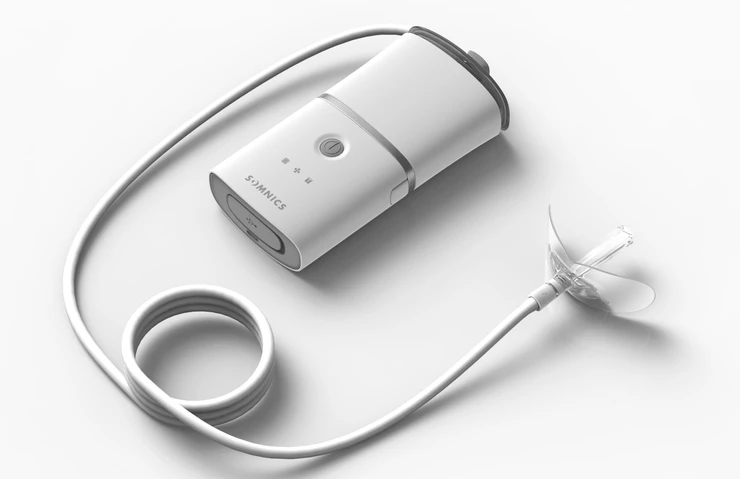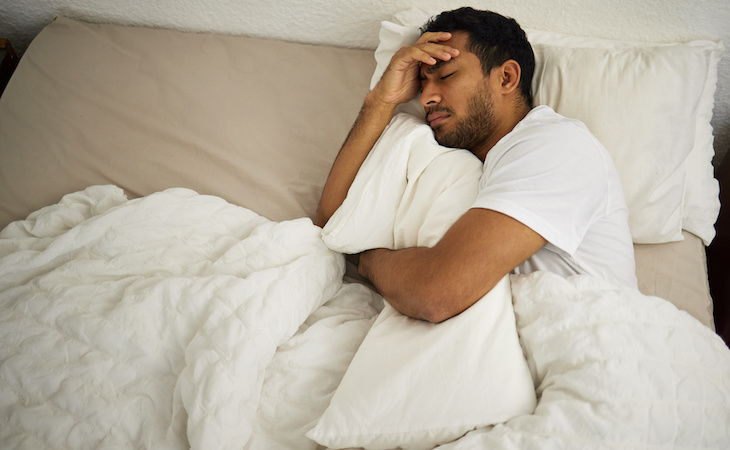Efficient Therapy Solutions for Managing Sleep Disorders and Enhancing Peaceful Sleep
In the realm of healthcare, the management of sleep disorders and the pursuit for relaxed sleep are pivotal parts of overall health. Efficient therapy services provide a complex technique to deal with these difficulties, varying from cognitive behavioral treatments to alternative practices that advertise relaxation and mindfulness. The expedition of different strategies, including the integration of medicine and light therapy, opens up a world of possibilities in the pursuit of far better sleep high quality. As we navigate the elaborate landscape of sleep problems and look for to boost our sleep experience, a much deeper understanding of these treatment options may hold the key to unlocking an extra refreshing and meeting restorative trip.
Cognitive Behavior Modification for Sleep Problems (CBT-I)
Cognitive Behavior Modification for Insomnia (CBT-I) is a structured, evidence-based treatment method that concentrates on dealing with the underlying aspects adding to sleep disruptions. This kind of therapy intends to customize habits and ideas that intensify sleeplessness, eventually advertising healthy and balanced rest patterns. CBT-I usually entails several essential elements, consisting of cognitive treatment, rest constraint, stimulation control, and rest health education.
Cognitive treatment aids people identify and alter negative idea patterns and ideas concerning rest that may be impeding their capability to fall or stay asleep. Rest constraint involves restricting the amount of time invested in bed to match the person's real sleep duration, consequently boosting sleep performance (sleep deprivation help). Stimulation control methods help develop a strong association in between the bed and sleep by urging people to go to bed just when drowsy and to stay clear of taking part in promoting tasks in bed
In addition, rest hygiene education and learning concentrates on developing healthy and balanced sleep behaviors, such as keeping a consistent sleep schedule, developing a relaxing going to bed regimen, and enhancing the sleep environment. By resolving these aspects comprehensively, CBT-I provides a reliable non-pharmacological intervention for handling sleeplessness and improving general sleep high quality.
Rest Hygiene Practices
Having established the structure of cognitive restructuring and behavioral alterations in attending to sleeplessness through Cognitive Behavioral Treatment for Insomnia (CBT-I), the emphasis now changes in the direction of checking out crucial Sleep Hygiene Practices for keeping optimum sleep high quality and total well-being.
Sleep health techniques encompass a range of habits and environmental variables that can significantly influence one's ability to go to sleep and remain asleep throughout the evening. Constant rest and wake times, developing a relaxing going to bed routine, and maximizing the rest environment by keeping it dark, peaceful, and cool are crucial elements of great sleep hygiene. Limiting exposure to screens prior to going to bed, staying clear of stimulants like high levels of caffeine close to bedtime, and taking part in routine exercise throughout the day can also promote far better sleep quality.
Additionally, practicing relaxation strategies such as deep breathing workouts or reflection before bed can aid relax the mind and prepare the body for rest. By integrating these sleep hygiene practices right into one's day-to-day routine, individuals can establish a healthy and balanced rest pattern that supports relaxed sleep and total health.
Leisure Methods and Mindfulness
Implementing relaxation techniques and mindfulness techniques can play an essential role in promoting a feeling of calmness and advertising top quality rest. Additionally, directed imagery can assist deliver individuals to a relaxed area in their minds, aiding in anxiety reduction and improving sleep high quality.
Mindfulness practices, such as reflection and yoga exercise, are additionally reliable in promoting relaxation and enhancing rest. Mindfulness urges individuals to stay present in the moment, releasing fret about the past or future. By including these methods into a bedtime routine, individuals can signify to their bodies that it is time to take a break and prepare for sleep. In general, incorporating relaxation techniques and mindfulness techniques can substantially add to taking care of sleep disorders and enhancing overall sleep high quality.

Medicine Options for Sleep Disorders
After exploring leisure methods and mindfulness techniques as non-pharmacological treatments for improving sleep high quality, it is necessary to take into consideration medication alternatives for people with sleep disorders. In instances where lifestyle modifications and therapy do not provide enough alleviation, medication can be a valuable device in managing sleep disturbances.
Typically suggested drugs for sleep problems consist of benzodiazepines, non-benzodiazepine hypnotics, antidepressants, and melatonin receptor agonists. Antidepressants, such as trazodone, can be helpful for individuals with co-occurring depression and rest disruptions - sleep deprivation help.
It is essential for people to talk to a healthcare provider to figure out one of the most proper drug choice based on their certain sleep problem and case history.
Light Treatment for Circadian Rhythm Law
Light treatment, likewise understood as photo-therapy, is a non-invasive therapy method made use of to control body clocks and boost sleep-wake cycles. This therapy includes exposure to brilliant light that simulates natural sunlight, which helps to reset the body's body clock. By subjecting individuals read what he said to particular wavelengths of light, typically in the morning or evening depending on the wanted result, light therapy can properly adjust the circadian rhythm to promote wakefulness during the day and improve relaxing sleep during the night.
Study has shown that light treatment can be particularly beneficial for individuals with body clock problems, such as delayed rest phase syndrome or jet lag. It can additionally be useful for those experiencing seasonal affective condition (SAD), a type of depression that commonly read takes place throughout the winter season when natural light direct exposure is reduced. Light therapy is normally well-tolerated and can be used along with various other treatment techniques for sleep conditions to optimize results and boost overall sleep high quality.
Final Thought
Finally, effective therapy services for managing sleep disorders and enhancing restful sleep consist of Cognitive Behavior modification for Sleeplessness (CBT-I), sleep health techniques, leisure techniques and mindfulness, medicine alternatives, and light therapy for circadian rhythm law. These strategies can assist individuals improve their sleep high quality and general wellness. It is essential to seek advice from a health care service provider to identify the most suitable strategy for dealing with rest issues.
As we browse the detailed landscape of rest conditions and seek to enhance our rest experience, a much deeper understanding of these therapy solutions might hold the trick to opening an extra rejuvenating and fulfilling corrective trip.
Rest restriction entails restricting the quantity of time invested in bed to match the individual's real sleep duration, thus increasing rest efficiency. Consistent rest and wake infant insomnia times, producing a relaxing going to bed routine, and optimizing the sleep setting by keeping it dark, silent, and cool are critical parts of great sleep health. Light therapy is generally well-tolerated and can be used in combination with other therapy approaches for sleep disorders to maximize outcomes and boost overall rest quality.
